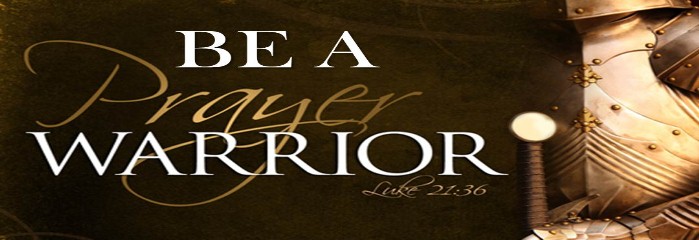A woman rushed into a supermarket to pick up a few items. She was in a hurry, so she headed for the express line, where the assistant was talking on the phone with his back turned to her. “Excuse me,” she said, “I’m in a hurry. Could you check me out, please?” The clerk turned, stared at her for a second, looked her up and down, smiled and said, “Not bad.”
And I guess the point is that most mothers today are always busy, busy serving their families. Whether that be cooking dinner, taking the kids to school, keeping the house clean, or caring for the kids. Moms are always busy keeping their homes and their families running smoothly.
But what about the mother who’s trying to be a godly mother too? How much more of a challenge is that for you?
Now I know some of you might find this hard to believe but when I was a little younger I used to think I was useless and worthless. And I believed that until I read Genesis 2:18 where God said, “It is not good for the man to be alone. I will make a helper suitable for him.”
And then I rather quickly learned that it was a woman(me) who was God’s gift to man.
We are going to look at a special woman in the Bible today, a woman who was a woman of prayer, courage and faithfulness. We are going to look at a woman from the Old Testament and we are going to discover that she has still got a lot to say to you mothers today. Because she too had her fair share of struggles within herself in her lifetime and she too had her fair share of ups and downs with her family.
We are going to look into the life of Hannah.
“There was a certain man from Ramathaim, a Zuphite from the hill country of Ephraim, whose name was Elkanah son of Jeroham, the son of Elihu, the son of Tohu, the son of Zuph, an Ephraimite. He had two wives; one was called Hannah and the other Peninnah. Peninnah had children, but Hannah had none.” 1 Samuel 1:1-2
So we find the scene is set, a man named Elkanah who was from Ephraim had two wives one named Peninnah and the other named Hannah. Peninnah had children but Hannah didn’t or as we will see in a minute she couldn’t have children. Now this is not your everyday family in terms of Elkanah having two wives. But it is your everyday family when it comes to jealousy within the home for someone’s attention. And its in 1 Samuel 1:3-5 that we find our 1st point.
1. All women need to be shown, just how much they are loved.
“Year after year this man went up from his town to worship and sacrifice to the Lord Almighty at Shiloh, where Hophni and Phinehas, the two sons of Eli, were priests of the Lord. Whenever the day came for Elkanah to sacrifice, he would give portions of the meat to his wife Peninnah and to all her sons and daughters. But to Hannah he gave a double portion because he loved her, and the Lord had closed her womb.” 1 Samuel 1:3-5
Here is a man who was dedicated to God. This was a man who tried to show his whole family just how important God was in their lives.
“Year after year he would take his family to worship and sacrifice to the Lord at Shiloh.” And that included Hannah. Year after year she too would go on this round trip journey of 40 miles to Shiloh with the rest of her family to worship God.
But for Hannah it would be a trip with mixed emotions. A time of love and a time of irritation. You see when the time of sacrifice came, Elkanah would give Peninnah and her children portions of meat which is in accordance with Deuteronomy 12:17-18. But he also gave a double portion of meat to Hannah for 2 reasons. He loved her and she couldn’t have children. But first and foremost Hannah was loved by her husband. All women need to feel loved, whether that loves comes from their children or their husband or their extended families like cousins and uncles.
When was the last time your husbands or children offered you something out of love? Ephesians 5:25-28.
That means letting the women around you know that you love them. That means loving them even when she’s going through some dramatic problems. You see it isn’t just a case of saying the words; it’s a case of love in action. The text says that ‘Elkanah gave portions of the meat to his wife Peninnah and to all her sons and daughters and to Hannah.’
You see a mother needs to know just how much she is loved. Sometimes its not enough just to say the words, “I love you.” Hannah was a woman who wanted to give her husband children but couldn’t. Now some of you can understand what it’s like not to be able to have children. And to most people that may not be a big deal but to a woman in Old Testament times, this was a big issue.
You see it was the children who did most of the labour in those days and it was the children who looked after their parents when their parents became old. Even her husband Elkanah had grounds to divorce Hannah because she couldn’t conceive children. A woman who couldn’t have children was considered a social failure in those days. And those were just some of the things that Hannah had to deal with. Because Hannah was also greatly distressed by the insults of Elkanah’s other wife Peninnah.
And although Elkanah showed her love, she was still hurting inside. And this went on for years before Elkanah realized there was something wrong.
“And because the Lord had closed her womb, her rival kept provoking her in order to irritate her. This went on year after year. Whenever Hannah went up to the house of the Lord, her rival provoked her till she wept and would not eat. Elkanah her husband would say to her, “Hannah, why are you weeping? Why don’t you eat? Why are you downhearted? Don’t I mean more to you than ten sons?” 1 Samuel 1:6-8
2. God knows what you are going through even when your family doesn’t.
How many of you were picked on at school because you were different? Maybe you wore glasses; maybe you had a speech impediment. You see getting ridiculed does hurt and hearing the same words over and over again can bring you down.
And maybe even now you still hear them ridiculing you years later, even though they are long gone. And those memories still hurt and what happens is that your self-esteem goes away from you and you end up feeling worthless. But Hannah shows us how we should deal with people who ridicule us. Matthew 5:44. Hannah took it to the Lord in prayer.
“Once when they had finished eating and drinking in Shiloh, Hannah stood up. Now Eli the priest was sitting on a chair by the doorpost of the Lord’s temple. In bitterness of soul Hannah wept much and prayed to the Lord.” 1 Samuel 1:9-10
You ever had those nights when you have had enough? And you lie there in your bed crying your heart out on the pillow. And you don’t think anybody sees that but God does. Hannah opened her heart up to the Lord and cried whilst she was praying and God listened to her cries. And the reason He listens to your cries is because God doesn’t think you’re worthless. He loves you and cares for you and He thinks that you are of great worth.
Remember in Genesis 16 when Hagar who was Abram’s maidservant had a child for Saria and Abram? She became pregnant and was thrown out of the household and found herself in the desert. An angel appeared to her and told her to go back to them and she said in Genesis 16:13, “She gave this name to the Lord who spoke to her: “You are the God who sees me,” for she said, “I have now seen the One who sees me.”
God saw her and she now knew that God knows her. And when you have those times when you are feeling low in self-confidence, your God sees you and knows you.
God heard Hannah’s cries of despair; God knew what she really wanted. You see she didn’t just want a child; she wanted a son whom she could devote to God.
That’s why she said in 1 Samuel 1:11, “O Lord Almighty, if you will only look upon your servant’s misery and remember me, and not forget your servant but give her a son, then I will give him to the Lord for all the days of his life, and no razor will ever be used on his head.” Year after year she went to Shiloh, probably asking God to bless her with a child, but its only now does she submit to God and say, “Ok God, if I can’t have a child for my own purposes, please grant me a child for your purposes.”
In other words if God would bless her with a son, she would devote him to the Lord all of his life. But notice that her persecution doesn’t stop when she prays. Even when she’s pouring her heart out to God with what she is going through, her praying is misinterpreted.
Remember in Acts 2 when the Spirit of God came upon the apostles and they spoke in tongues? It says in Acts 2:12-15 “Amazed and perplexed, they asked one another, “What does this mean?” Some, however, made fun of them and said, “They have had too much wine.” Then Peter stood up with the Eleven, raised his voice and addressed the crowd: “Fellow Jews and all of you who live in Jerusalem, let me explain this to you; listen carefully to what I say. These men are not drunk, as you suppose. It’s only nine in the morning!”
God’s people being accused of being drunk is nothing new, Hannah was accused of the same thing.
“As she kept on praying to the Lord, Eli observed her mouth. Hannah was praying in her heart, and her lips were moving but her voice was not heard. Eli thought she was drunk and said to her, “How long will you keep on getting drunk? Get rid of your wine.” 1 Samuel 1:12-14
You ever had times like that in your life? When you are really upset about something that is happening in your life and your praying to God quietly and people wonder what is wrong with you?
Hannah said to Eli in 1 Samuel 1:15-16, “Not so, my lord,” Hannah replied, “I am a woman who is deeply troubled. I have not been drinking wine or beer; I was pouring out my soul to the Lord. Do not take your servant for a wicked woman; I have been praying here out of my great anguish and grief.”
And that brings me to my next point.
3. A problem shared is more than a problem halved.
Hannah made progress in her life. Hannah a woman, who was greatly distressed to the point where she constantly felt physically sick and wouldn’t eat, left after her worship to God feeling stronger. She went to Shiloh to worship her God knowing her God but she left Shiloh knowing that her God knows her too.
“Eli answered, “Go in peace, and may the God of Israel grant you what you have asked of him.” She said, “May your servant find favour in your eyes.” Then she went her way and ate something, and her face was no longer downcast.” 1 Samuel 1:17-18
Her whole outlook on her life changed because she took the time to earnestly speak to her God. She also received words of encouragement from Eli the high priest but most importantly she left her worries with God. 1 Peter 5:7.
The problem is that we give God all our problems when we talk to Him in prayer but as soon as we’ve finished praying to Him, we take them all back again. Hannah didn’t do that, she was no longer feeling unhappy with life and her problems and she was eating again. She still couldn’t have children; she was probably still being ridiculed by Peninnah.
So what’s changed?
Her God has changed. Not that God changes but her view of God has changed. He’s no longer this person whom she just talks to from time to time. He’s this God who can be approached with an honest heart, He’s the God who sees, the God who cares, the God who understands.
“Early the next morning they arose and worshiped before the Lord and then went back to their home at Ramah.” 1 Samuel 1:19
I guarantee you that the way she worshiped the Lord on that day was different from all the other years of worship for Hannah. Hannah shared her problems with God and Eli but her problems weren’t halved, they were given to God.
Give God all your worries and leave them with Him. Allow God’s people to give you words of encouragement when you are feeling a bit down. Leave here today knowing that your God understands what you have been through, what you’re going through and what you’re going to go through.
4. Let God take care of you today and trust Him for a miracle tomorrow.
You see, if we truly believe that God is going to answer our prayers, we need to continue to walk like He’s going to answer that prayer. It’s no good asking God to send you someone to share the gospel with, if you never go out of your home.
It’s no good asking God to give you confidence to face the day when all you do is stay in bed. You need to do these things so that God can provide the answers to your prayers. And Hannah was no exception.
Because in 1 Samuel 1 and the 2nd part of verse 19 says, “Elkanah lay with Hannah his wife, and the Lord remembered her.”
She had to make love with Elkanah for her to become pregnant. And maybe this time when she made love with him. And when the Bible says that God remembered her, it’s not a case of God saying, “Oh I totally forgot about Hannah, I better do something.” It’s a case of when the time was right, He would answer her prayer.
“So in the course of time Hannah conceived and gave birth to a son. She named him Samuel, saying, “Because I asked the Lord for him.” 1 Samuel 1:20
She left the problem in God’s hands and went about her daily business and when the time was right God answered her prayer. And because she knew that God hadn’t forgotten her, she didn’t forget her vow to God either. Samuel was born and when he was old enough, 1 Samuel 1:21-27 tells us that she handed him over to the Lord to work for Him.
Can you imagine that for one moment?
Going through all sorts of ridicule all of your life because you couldn’t have kids, then handing him over to someone else? Samuel was probably around 3 years old when Hannah left him at the tabernacle. Imagine, 3 years of bonding with your child and then giving him up! You see Hannah understood that Samuel’s life was a gift from God, so she wasn’t really giving him up; she was simply returning him to God.
Now when we give something up that is precious to us, it’s a struggle sometimes to let it go. All to often, especially moms find it hard when their kids grow up and leave the home. I know of a lot of moms who dreaded that day and who are still dreading that day.
Now we know that children do grow up and leave the home and get married and sometimes that hurts but we also know that we still see them regularly. Especially if they need money or some advice for a problem they are having. But Hannah was no exception, every year she would go back to Shiloh and see her son.
You see for Hannah handing Samuel over to do the lord’s work was a sad time for her but God knew that, so He blessed her with even more children.
“And the Lord was gracious to Hannah; she conceived and gave birth to three sons and two daughters. Meanwhile, the boy Samuel grew up in the presence of the Lord.” 2 Samuel 2:21
But when she handed Samuel over to the Lord, it was also a time of rejoicing.
You’ve got a heavenly father who loves you with the entire universe. He loves us all so much, He was willing to come to earth and die for us all. And if you’re not a Christian today then you can be sure that He died for you too.
And maybe you’ll leave here rejoicing in the Lord as Hannah did when submitted to His will being done, and not hers. Let’s read Hannah’s song of prayer as we finish.



